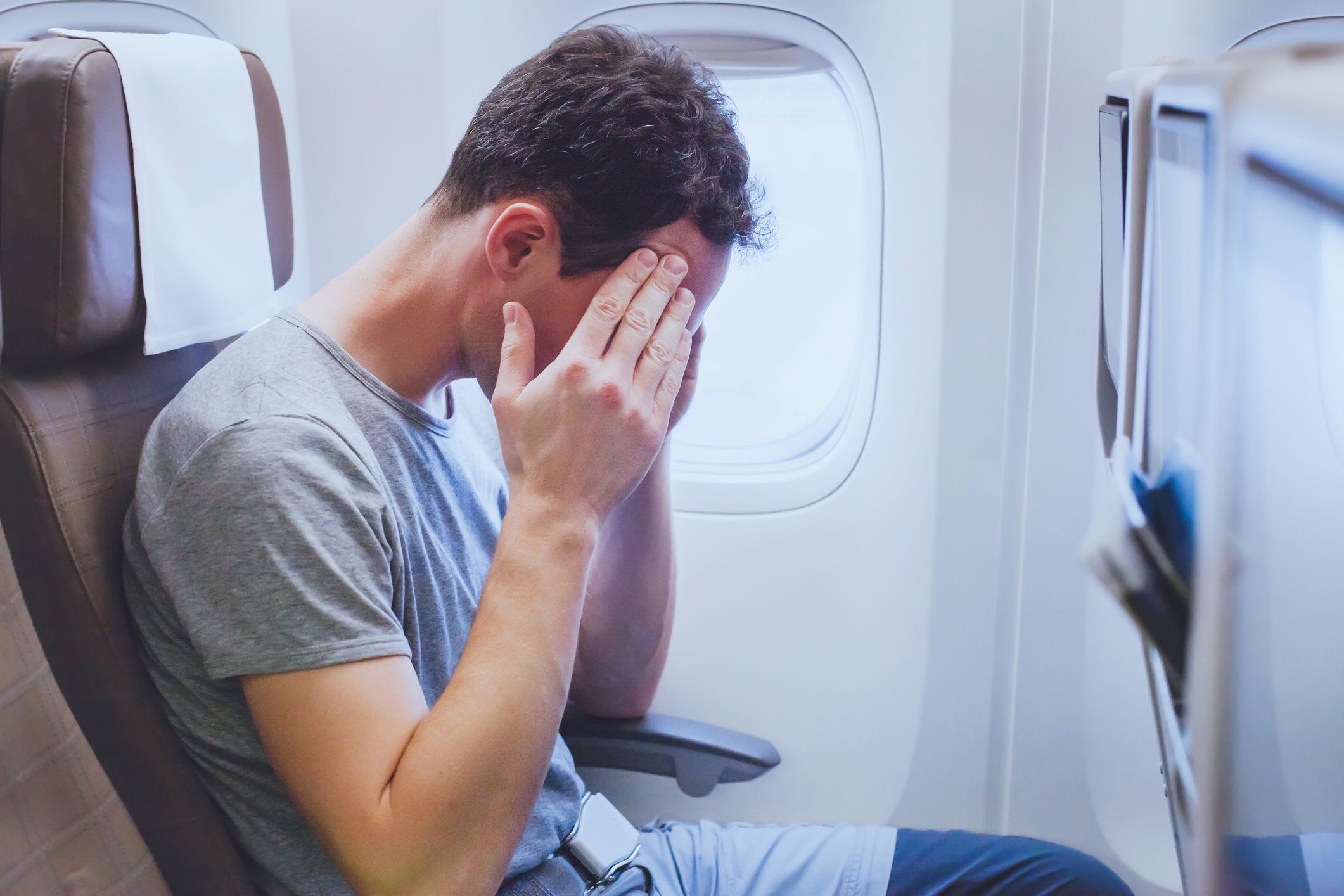Something about flying 35,000 feet above the planet's surface in a 90,000-pound tube can frighten even the most fearless people, especially if you're unfamiliar with plane mechanics or aerodynamics.
A flying phobia is entirely regular and more frequent than you might believe. Many people suffer from flying phobia, which is called aerophobia or aviophobia. While there is no one-size-fits-all method for overcoming a phobia of flight, some habits and following requirements will make the journey considerably less stressful.
Recognizing Triggers
We have triggers for our anxieties about flying, which are ideas, pictures, feelings, and experiences that we have become sensitised to. A person who is hypersensitive to particular physical sensations may be afraid of turbulence or routine takeoff and landing. Someone afraid of heights may become horrified at the prospect of flying several miles above the ground.

Turbulence, takeoff, landings, terrorism, wrecks, social anxiety, or being too far away from home are all potential triggers. Some passengers are afraid of fire, illness spreading through the air intake, restrooms use, or fighting on a plane. Others express a "bad feeling" about their flight, fearing that their worries would foreshadow a disaster.
Behind the Fears and Phobias
The dread of becoming overcome with nervousness during the flight is shared by more than 90% of flight apprehensive.
When traveling, people usually have an unanticipated panic attack and are terrified that the scary symptoms may repeat on their next flight. These panic attacks often occur between 17 and 34, during a major life transition such as birth, death, engagement, divorce, or degree completion. That is why persons who have flight phobias frequently question why they were once capable of flying so comfortably. A traumatic flight causes very few anxieties of flying.
A flying phobia is rather prevalent, yet nearly 20% of the population reports it interferes with their jobs and social lives. Fearful fliers frequently forgo vacations and job raises. Experts classify anxiety about flying into three categories; which do you fall into?
- Those who do not travel or have not flown in more than five years despite having the opportunity to do so.
- Those who only fly with intense terror when required.
- The one's who fly when necessary, but with trepidation.
Here's what you'll want to do before your next journey, from identifying your triggers to packing the correct anti-anxiety carry-on items.
Aerophobia Causes
There is no single cause of aerophobia; instead, fear is caused by a combination of events. The anxiety about height can be inherited genetically or instilled in children by their parents. Increased media exposure to aircraft accidents or other catastrophes also may play a role. Most individuals fear traveling because they believe they cannot control the circumstance or their safety. The longer an individual resists flying, the more the phobia may become. This fear is sometimes linked to other phobias, such as a fear of throwing (emetophobia), a fear of heights (acrophobia), or a fear of confined areas (claustrophobia). Focusing on such specific phobias can sometimes help to resolve aerophobia.
What works best for overcoming the fear of flying?
Understand your trigger:
The reason for fear of flying differs from person to person, and ultimately, it comes down to understanding what causes your anxiety – and what you can do about it.
First and foremost, identify and investigate the source of your worry. Understanding your trigger generally helps with public speaking fear; knowing the reason for your fear will also help you overcome it. Once you've determined why you're afraid of flying, you may evaluate what steps you can take to alleviate it.
Discuss your flight anxiety with the staff:
Speak with a professional, not a psychologist, but an airline professional. From safety checks through taxiing and takeoff to landings, hearing about what happens outside the main cabin causes you to feel less at the mercy of strangers.
Sitting down with them and listening to their stories can be beneficial if you know someone who serves as a captain or flight attendant. However, conversing with the flight crew can provide a wealth of information. Flight attendants have seen their fair proportion of frightened passengers and possess the knowledge and tools to put you at ease.
To overcome your phobia of flying, consider taking flying lessons:
It may sound crazy, but understanding the in with and options of flying from the ground up could be the secret to finally overcoming your phobia of flying. Getting outside your bubble to fly with an expert will show you that there is no mystery, and you'll grasp how the plane operates.
While learning how to fly might be expensive, even just a few sessions can help you overcome your anxieties.
Consider the destination to help you conquer your fear of flying:
It's not always about where you're going. You're looking forward to getting there in many cases, whether it's an overwater house in the Maldives or a lakeside cabin in the Rockies. That's a terrific method to narrow your focus.
Concentrate on the destination rather than the trip. When you start to have evil thoughts, remind yourself of how amazing you'll feel once you're on the ground, enjoying your well-earned vacation.



Leave me a comment
Thank you for reading my post, if you want to leave a comment, you can do so below.